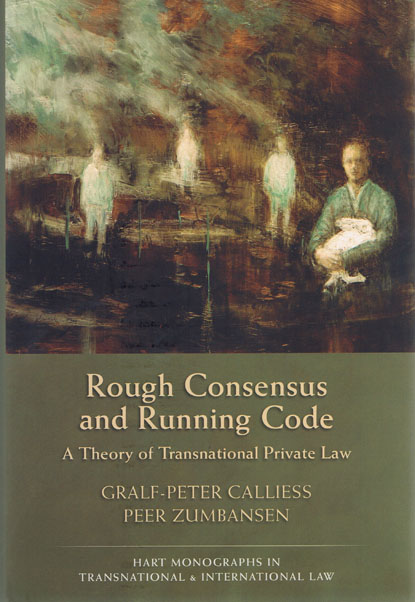
Private law has long been focus of efforts to explain wider developments in global law. As consumer transactions and corporate activities have developed with scant regard to legal and national boundaries, private law theorists have been called upon to investigate what the international law framework might look like.
Moving between 'hard' and 'soft' laws, as well as official, unofficial, direct and indirect regulation, this book constitutes the first comprehensive attempt to develop the framework for a private law regulatory regime which mediates between state-society and public-private relations on the one hand and a fast-evolving transnational normative field on the other.
Rough Consensus and Running Code describes and assesses the different law-making regimes currently observable in the transnational arena. Its core aim is to reassess, in terms of its legitimacy, the transnational regulation of contracts and corporate law as undertaken by regulatory regimes which are neither purely national nor international, neither exclusively public, nor private in nature. Instead the institutions and the principal actors are hybrids.The challenge for scholars of public and private international law is to incorporate the new norms into existing bodies of law and this, ultimately, is the challenge met by this new work.